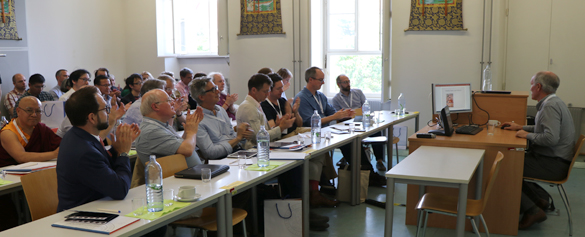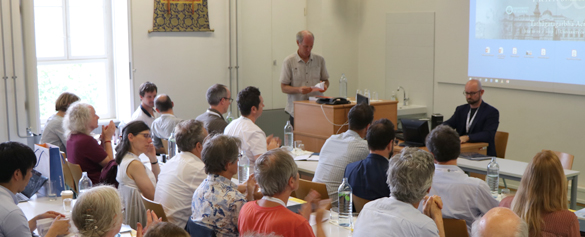Buddha-Nature and Selfhood
Gwen Witt Dorring2022-11-16T23:39:23-07:00The eighth Karma pa Mi bskyod rdo rje’s (1507–1554) prolific writings on tathāgatagarbha contain several extended disquisitions on the topic of how buddha-nature relates to different conceptions of selfhood. On the one hand, he broadly rejects, along the lines of standard Madhyamaka critiques of the belief in self (ātmagrāha), any equation between buddha-nature and a self. While his critiques take in the controversial current of early Indian buddha-nature theory that had equated buddha-nature with a true self, their primary target is ‘Gos Lo tsā ba gZhon nu dpal’s (1392-1481) identification of buddha-nature with a subtle self, which was allegedly made […]


